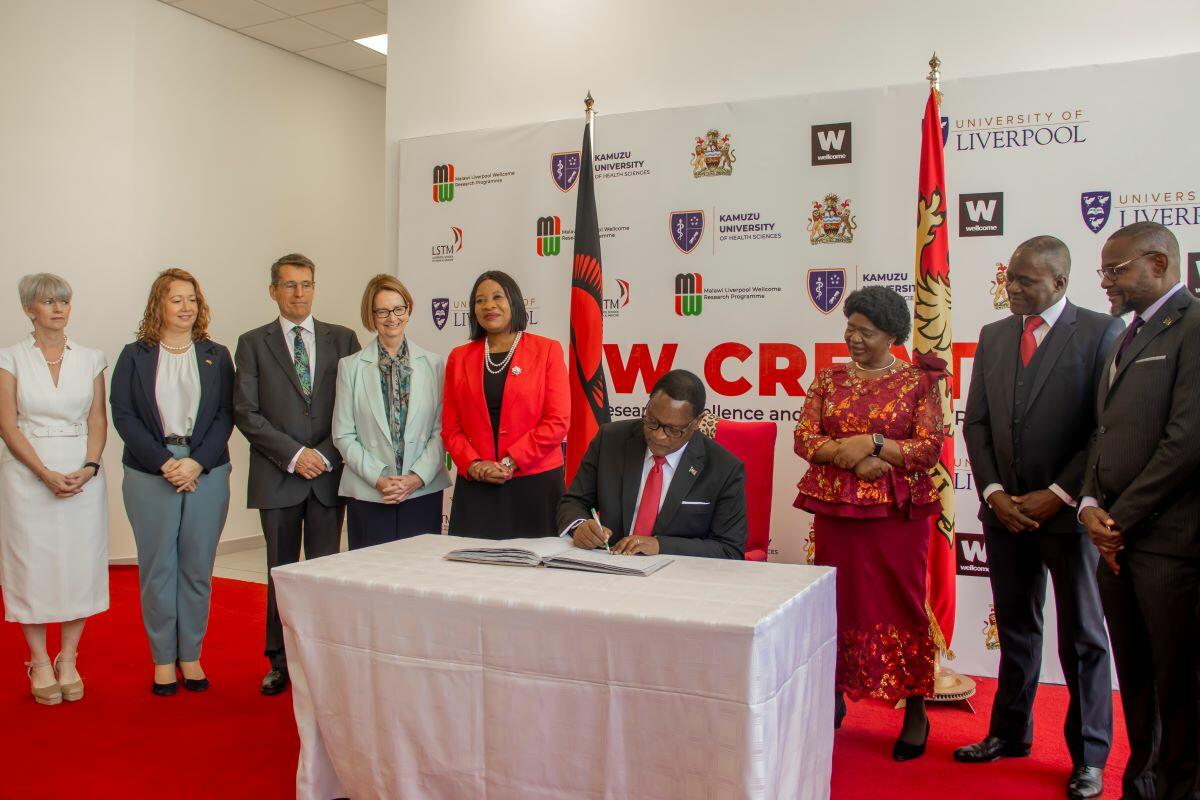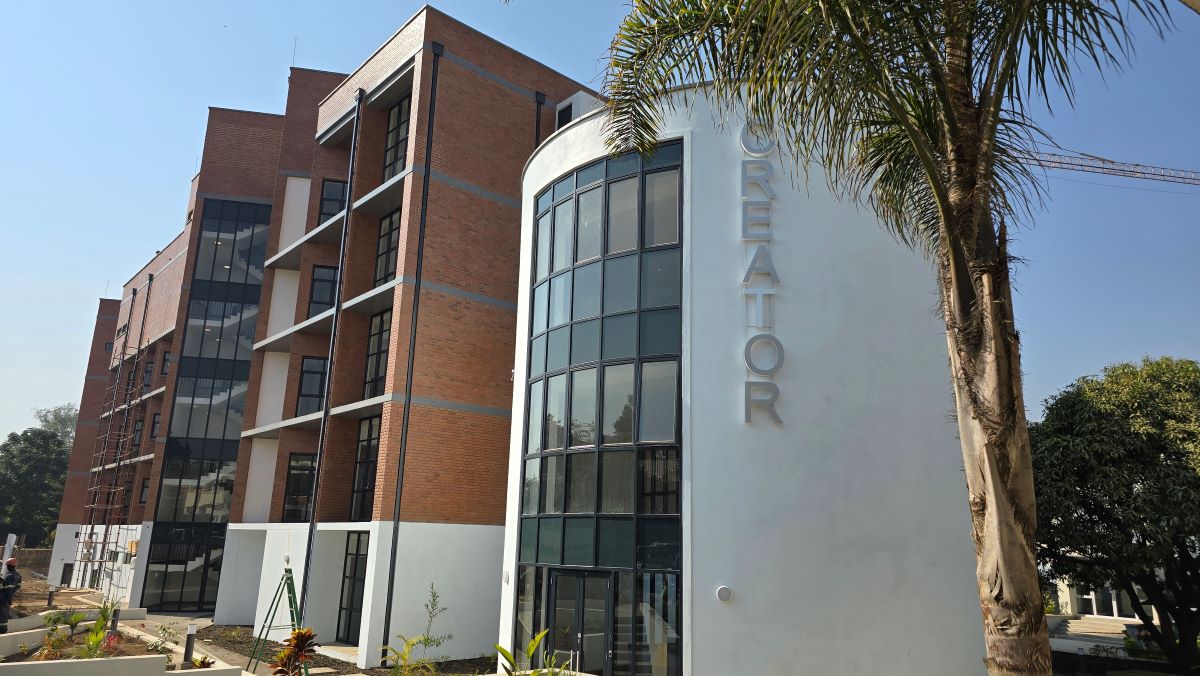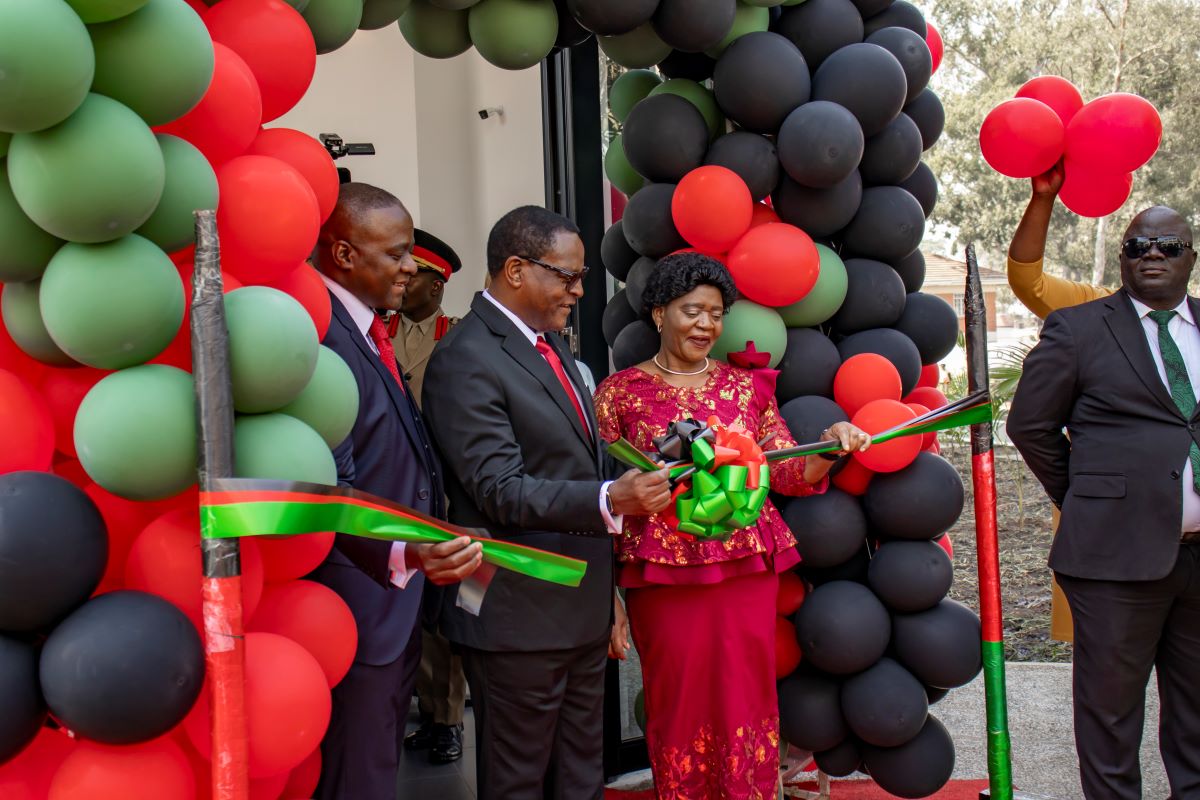
A new facility will transform the future of medical research and training in Malawi and the wider region – the latest step in a trailblazing healthcare partnership between Africa and Liverpool that has spanned three decades.
Today (August 7), the Malawi Liverpool Wellcome Research Programme (MLW) officially opened the CREATOR building in Blantyre, a multi-million-pound investment that will power MLW’s ambition to be the leading research institute based in a low-income country.
MLW is a 30-year partnership between Kamuzu University of Health Sciences in Malawi, Liverpool School of Tropical Medicine, the University of Liverpool, and Wellcome. Since 1995, MLW has hosted high impact research trials on malaria, tuberculosis, HIV, pneumonia treatments, maternal and child health, and vaccine policy.
Through these equitable international research collaborations, and close working with the Malawian government, MLW has addressed regional and global health priorities with great success.

CREATOR will significantly enhance this work, providing additional research facilities and space for postgraduate medical training in Malawi, retaining talent and expertise in the region.
The five-storey building will almost double MLW’s physical capacity, scaling up its research capacity by 30% over the next decade and better equipping it to meet emerging health challenges – from the impacts of climate change to non-communicable diseases.
CREATOR was officially opened at a special ceremony attended by the Malawian President Dr Lazarus Chakwera, alongside regional healthcare leaders and representatives from all MLW’s international partners.
Professor Henry Mwandumba, Director of MLW, said: “CREATOR is extremely important because it creates the infrastructure and support that will enable clinicians to conduct high quality research that can promote the health and wellbeing of people in Malawi and beyond. It is a significant milestone in health research in Malawi.”
Professor David Lalloo, Vice-Chancellor of LSTM, said: “CREATOR is more than a building. It is a significant step in the transfer of power in clinical research capacity and knowledge towards the Global South, which is a key part of LSTM’s mission. CREATOR ensures that medical and scientific expertise will remain in Malawi, helping to inspire the next generation of African scientists and enhance even further the translational research infrastructure which will improve lives and livelihoods in the region. We look forward to working with our partners to make this a success.”

Professor Louise Kenny, Executive Pro-Vice-Chancellor of Health and Life Sciences at the University of Liverpool, said: “I’m delighted to be celebrating the opening of CREATOR, which represents the next exciting phase of the long-standing MLW partnership, which we are immensely proud to be part of.
“This milestone moment in our shared journey will build on our collaborative work to tackle the most urgent health challenges in sub-Saharan Africa, realising ambitions to create an optimal research environment for tomorrow’s health research leaders in Africa.
“CREATOR will also enable to the University to build on the application of its key strengths in infectious diseases, climate change, maternal health and health data science in an African context, all of which are priorities in Malawi and the wider continent.”
John-Arne Røttingen, CEO of Wellcome, said: “For nearly 30 years, MLW has been at the forefront of health research and clinical training, making an incredible impact in improving the lives of people in the local community and wider region.
“CREATOR provides world-class infrastructure but more than that, it provides an exciting opportunity. Through collaborative science, CREATOR will nurture new generations of research and clinical leaders to learn, discover, experiment, and ultimately solve urgent health challenges.”

CREATOR building
CREATOR will house an innovation hub, a new laboratory allowing for single-cell transcriptomics, modern imaging and rapid pathogen sequencing, modern teaching spaces, a postgraduate resource centre for 200 clinical trainees and library space and offices to support advanced epidemiology and clinical trials.
The first research projects will begin in CREATOR later this year.